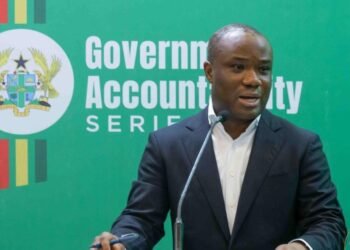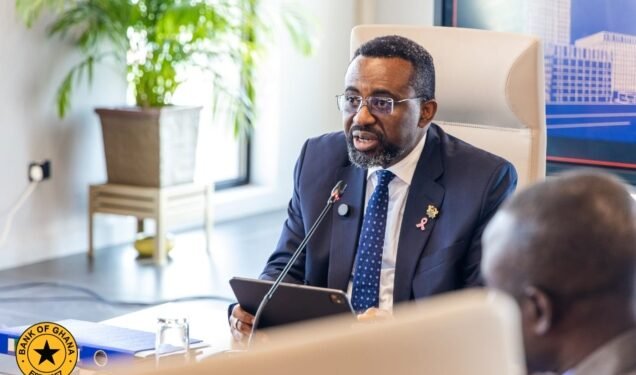Fidelity Bank Ghana has reaffirmed its commitment to fostering economic transformation by implementing innovative and growth-oriented initiatives.
The bank’s Managing Director, Julian Opuni, outlined these measures at a recent media engagement, highlighting the bank’s strategic focus on Small and Medium-sized Enterprises (SMEs), digital financial services, and the creative arts sector.
As a leading indigenous bank, Fidelity Bank continues to provide critical financial and non-financial support to SMEs, recognizing their role as the backbone of Ghana’s economy. According to Mr. Opuni, the bank has been actively offering resources to help SMEs scale their operations, enhance productivity, and contribute meaningfully to national development.
The Managing Director emphasized Fidelity Bank’s commitment to initiatives that foster innovation and sustainability in business.
“The Fidelity Bank has been providing financial and non-financial resources to SMEs and young entrepreneurs to harness social impact potential, build capacities, and enable businesses to grow and scale up.”
Julian Opuni
Among these initiatives is the GHS1 million Green Tech Challenge, which provides grant funding to support innovative solutions addressing critical challenges within the country’s agricultural value chain. Mr. Opuni also highlighted the Fidelity Young Entrepreneurs Fund, which is designed to provide funding for scalable businesses that solve societal problems while utilizing climate-smart adaptation or mitigation change processes in their activities.
Leveraging Digital Innovation for Financial Inclusion
Fidelity Bank is also advancing digital solutions to make banking more convenient and accessible. The bank is integrating robotics into its operations to streamline processes and improve customer experience. Additionally, it is expanding its digital engagement by utilizing popular social media platforms like WhatsApp to interact with customers.
On the bank’s digital innovations, Mr. Opuni pledged the Bank’s resolve to engaging some of its clients on social media platforms including, WhatsApp, to make banking more convenient and accessible.
This move is expected to enhance customer satisfaction, particularly among tech-savvy individuals and SMEs that require seamless financial solutions. The bank’s efforts align with Ghana’s broader digital transformation agenda, positioning Fidelity Bank as a key driver of financial inclusion.
A significant part of Fidelity Bank’s strategy is the promotion of financial literacy, especially among local communities. Mr. Opuni emphasized that the bank would use local languages to educate Ghanaians on the importance of savings, investment, business growth, and personal financial management.
“The bank would use local languages to enhance its financial literacy and awareness programmes, making Ghanaians understand the importance of savings and investments as well as business and personal growth.”
Julian Opuni
By breaking language barriers, the bank aims to reach a wider audience, ensuring that more individuals and businesses understand financial concepts and make informed decisions. This initiative is expected to enhance economic participation and financial independence among underserved populations.
Supporting the Creative Arts Sector Through ‘Orange Inspire’
Recognizing the potential of the creative industry in economic growth, Fidelity Bank has launched the ‘Orange Inspire’ programme. This initiative is designed to support the creative sector through mentorship, funding, and grants.
Mr. Opuni noted that the creative industry often gets overlooked in economic development plans, despite its ability to generate employment and drive innovation.
“We believe the creative industry always gets left out, so this year we are launching the Orange Inspire, which will focus on the creative sector, and we are going to be offering mentorship, funding and grants to the creative sector.”
Julian Opuni
With the introduction of Orange Inspire, Fidelity Bank seeks to empower creative professionals, providing them with the necessary resources to thrive.
During the media engagement, Mr. Opuni underscored the importance of responsible journalism in shaping economic narratives. He urged media professionals to focus on constructive discussions that highlight the progress made by Ghanaian businesses and financial institutions.
He also cautioned against misinformation, noting that inaccurate reporting could undermine economic confidence. “He cautioned against uninformed stories and misinformation, which tended to jeopardise the gains made over the years by Ghanaians.”
READ ALSO: BoG Seeks to Re-anchor Disinflation Process with Policy Rate Hike to 28%























